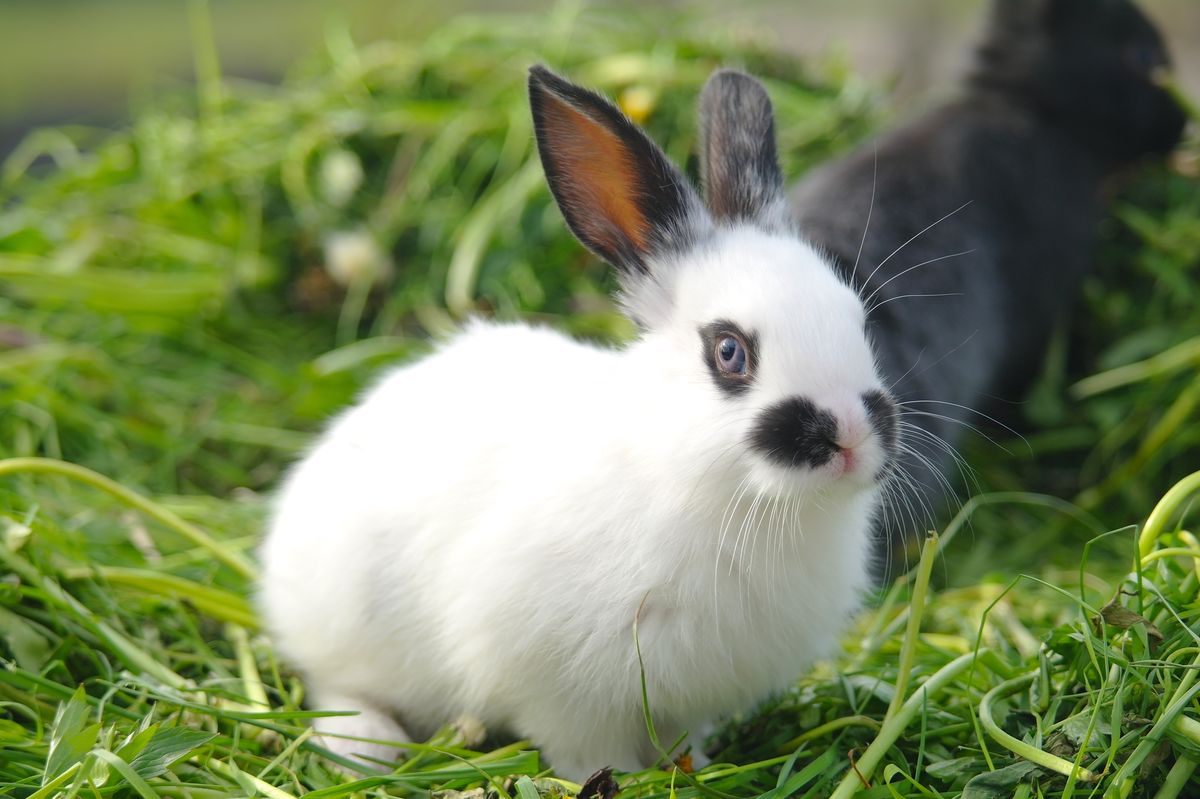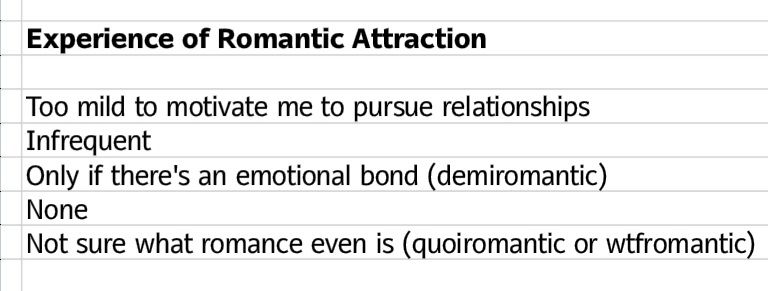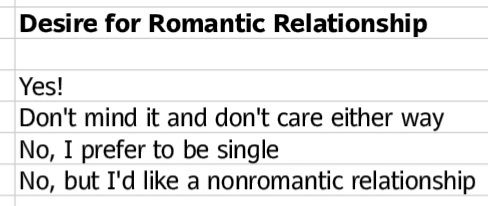Aromantics Can Desire a Loving and Sexual Non-Romantic Relationship
Deep, intimate relationships beyond romantic love

It boggles my mind why so many people assume that, if a relationship is both emotionally and sexually intimate, then it must be romantic.
Why can’t these folks see the other types of relationships, beyond categories like platonic friends, romantic partners, friends with benefits, fuck buddies, and one-night stands?
I happen to be both a romance-repulsed aromantic and a demisexual. Demisexuals can only experience sexual attraction if there is a close emotional bond. Aromantics, on the other hand, lack romantic attraction. But there is a lot of diversity among aromantics (aka aros).
For instance, some aros experience no romantic attraction. Some feel it rarely. Some feel it too mildly to be motivated to pursue a relationship. Some only feel it when there is an emotional bond first (aka demiromantic). Some have no idea what romance even means, so they couldn’t tell you if they experience it or not (aka quoiromantic or wtformantic.)
I’m definitely a quoiromantic. To this day, I’m not sure what romantic attraction even means beyond what I see in books and movies.
As for how we feel about getting into romantic relationships, some of us want to, some don’t care either way. Some of us dislike it and prefer to be single. And some others, like me, may not like romantic relationships, but are still interested in a relationship that involves both emotional and sexual commitment.
Here are some tables to show different types of aromantics:


When I say that I’m “romance repulsed,” I mean that I don’t like the thought of myself being in a romantic relationship. Nor do I feel comfortable having romantic labels such as “boyfriend” or “date” slapped onto me. I don’t like being seen as part of an item, unit, or dyad with someone else.
While I’m interested in being “together,” I’m not interested in being irrevocably connected to someone else, rather than being my own person. Yes, I know plenty of people would argue that they can be both part of a couple and be their own person. Great, but I don’t even want to be a part of a couple. I prefer something like a close friendship, where the people are in a (platonic) relationship, but are not joined at the hip, not even figuratively.
That said, I don’t have a problem with other people being in romantic relationships. In fact, I even adore romance in fiction.
Among aromantics who don’t want to be in a romantic relationship, here are examples of feelings towards romance in other people:

For myself, I would like a relationship that is not romantic, with no social expectations that typically come with romantic relationships, such as hand-holding, meeting their family and friends, doing each other’s laundry, sharing a car, having a joint bank account, and a whole lot of things that couples are expected to do. I know not all couples actually do these things, but I don’t even want the expectations foisted upon me.
Aromantics Are Not Cold and Heartless
It also bothers me how some people think aromantics are heartless and cold. Just because we might not want a romantic relationship, doesn’t mean we don’t enjoy non-romantic ones, such as friendships, family relationships, and loving sexual relationships with no romance involved.
Moreover, I am a demisexual, so I can’t even feel sexual attraction in the absence of emotional connection. But this emotional connection is not romantic for me. That doesn’t mean I don’t value this relationship, however.
An essential problem is that romantic love is often seen as superior to all other relationships. For instance, platonic friendships are viewed as shallower and inferior to romantic relationships.
There is also a term I like to use, queerplatonic relationships (QPRs). This is a committed, emotionally intimate relationship that is non-romantic. It’s often nonsexual, but some partners in a QPR are sexually involved, too.
However, I have personally drifted away from the term queerplatonic relationships. This is partly because not many people have heard of QPRs, and partly because the term doesn’t seem to fit me that well. The word “platonic” would be misleading for me, since I’m still interested in sexual relations.
Infatuation
Another issue is infatuation. Some people believe that having butterflies, intoxication, obsessive thinking, and emotional highs and lows, automatically mean romance. But no, this is a phenomenon that doesn’t have to involve romantic attraction, though it can.
There’s a term in the aromantic community called a squish, which is the analog to a crush. This means having those butterfly feelings for someone, with no desire to be in a romantic relationship with them.
This concept may be foreign to people who are not aromantic, but it’s possible to be in love with someone without wanting to be in a romantic union with them. Some even call it a platonic crush. I just call it a crush so that it’s easier to talk to my romantic friends about it, while in my mind, I understand that it’s not romantic. It’s often sexual for me, though.
Safety and Stability in Relationships
An aromantic may want to have safety and stability in a relationship, too. I also want someone I can count on, someone I can look forward to coming home to, someone I can trust. I would like to have someone stable in my life, preferably living together or at least living as neighbors.
But this doesn’t mean that I want a romantic partner. What I wish for, is more like best friends who are roommates who sometimes have sex. They might be closer than most best friends, but they are still not romantic partners.
There is a fallacious belief that romantic partners are the safest and most stable people in our lives, never mind the high divorce rates. An emotionally and sexually intimate relationship that is nonromantic, can be just as stable and safe, or just as chaotic and stormy. Ultimately, it’s not about what type of relationship it is, but more about what the two people build with each other.
No matter the relationship, there will be negotiations of boundaries, and lots of communication. Not everyone likes what you like. So it’s no good assuming that the other person will like certain things just because you’re in a relationship with them.
For instance, I don’t wish to share a bank account or a car, and definitely don’t want to do anyone else’s laundry. I also don’t want to hold hands. Though I’m okay with kissing and most other intimacies.
Am I Just Splitting Hairs and Playing with Words?
I bet many readers will think that I’m just fooling around with words and labels, or that I’m making something natural way too complicated to understand. But this discussion does matter.
First of all, labels have strong emotional connotations. So it can be hurtful and irritating to have the wrong labels pushed onto you. Yes, people in an intimate non-romantic relationship, likely have to deal with being called all sorts of romantic labels against their will. That doesn’t make it less hurtful or annoying, however.
And even beyond the labels, there’s something different about this kind of non-romantic intimate relationship. For one, there are no inherent social expectations that romantic relationships have. And you are not a unit or a couple.
There is also a certain something in romance that is not found in this type of relationship. When I told a romantic friend about what I would like in a relationship, she said she could hear something different in how I described it. There was a certain something that people call romance that I don’t seem to feel. I don’t know what I don’t know.
Sometimes I may appear romantic just because I have mimicked all these Hollywood and romance novel tropes. Maybe I’m just good at pretending to be something I’m not. Perhaps what I want is very similar to a romantic relationship, but most people won’t notice the differences unless I point them out explicitly. Or, I might point out these differences, and they may just dismiss me and think I’m making a big deal out of it.
Hopefully, one day, we can be equally validating of the people who want unconventional relationships, as we are of people who want romantic relationships. Neither is right or wrong, good or bad. We’re not hurting anybody. On the contrary, we’re being open and honest about how we feel, because we don’t want to mislead the other person into thinking that we want a romantic relationship when we actually don’t.
I do sometimes feel tempted to just succumb, though. It seems much easier to go with the crowd and say you want something that you don’t, just because society expects it of you. But I will resist and keep pushing against the grain. I will be true to myself.
If you love my LGBTQ+, psychology, art, and culture stories, consider supporting my work by leaving me a tip. No contribution is too small!
Originally published on Prism & Pen on Jan 12, 2023



